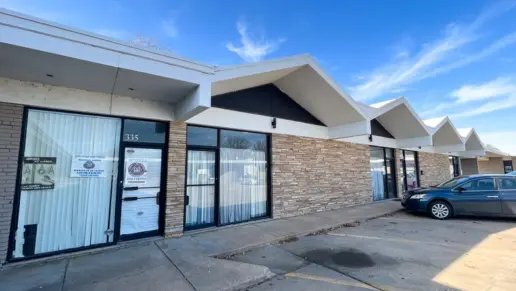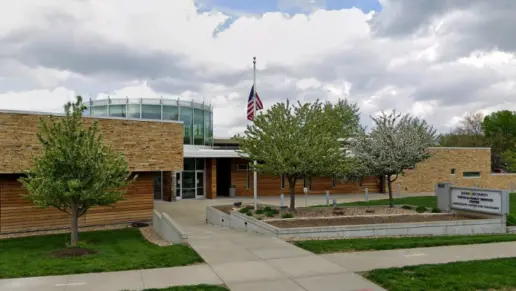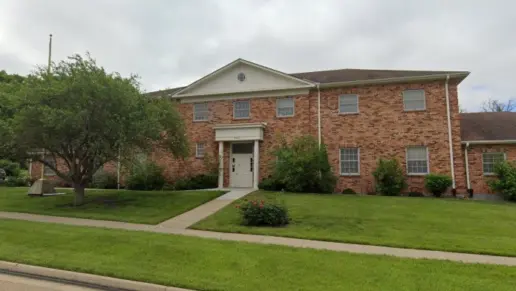I was a Resident at Valley Hope moundridge On June 13, 2016. I recently had my three year birthday. Valley Hope “saved my life. After two previous attempts to stay clean, from other treatment centers, My treatment at Valley Hope Gave me the tools I needed to get clean and ...
About Valley Hope of Moundridge
Located in Moundridge, Kansas, Valley Hope of Moundridge has set its sights on helping people who are distressed under the grip of alcohol and drug addiction. They have several locations around the country, but here we’ll be focusing on this Kansas location, which offers residential treatment. This means that you’ll be receiving round-the-clock care by a team of medical professionals who can treat you along every step of your recovery process. Yes, this even means that they can provide medication assisted treatment, if needed. That means you’ll be able to get medication if there is any concern that you’ll experience any dangerous or overly uncomfortable withdrawal symptoms. This is a huge benefit for many, since certain addictions can be so severe that their withdrawal effects can be life-threatening.
They follow the teachings of the 12 Step program and provide more than 40 hours a week of individual counseling, group therapy, family therapy, milieu therapy, and holistic treatment options. Those holistic options include things like outdoor and indoor recreational activities. These help you have fun while you recover instead of feeling trapped somewhere foreign. Options may also include yoga and meditation classes.
They also offer services that are specifically catered to veterans of the United States military. And they even provide discharge planning and return-to-work assistance if you need some help getting back on your feet in the outside world.
Rehab Score
Gallery
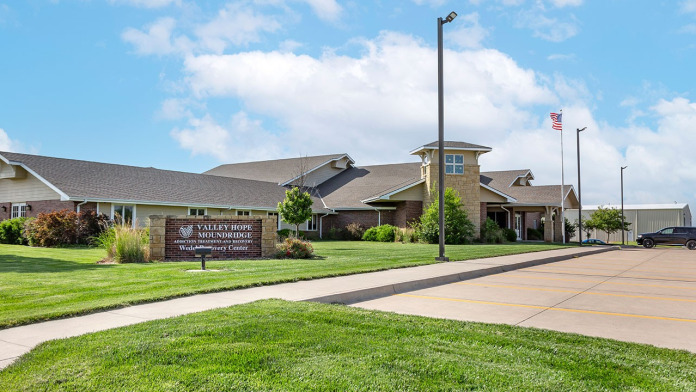
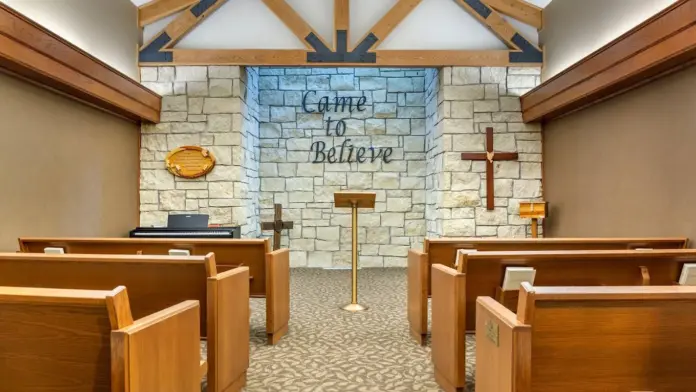
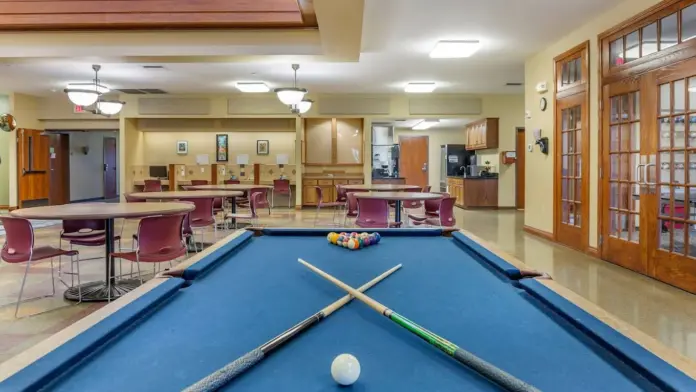
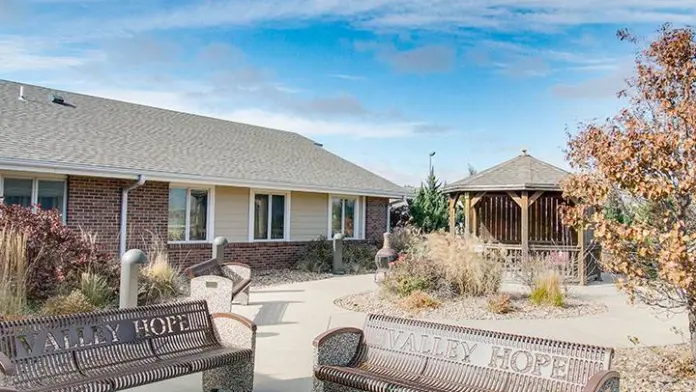
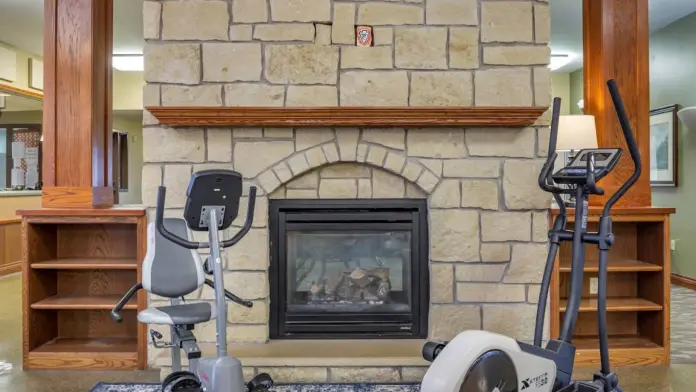
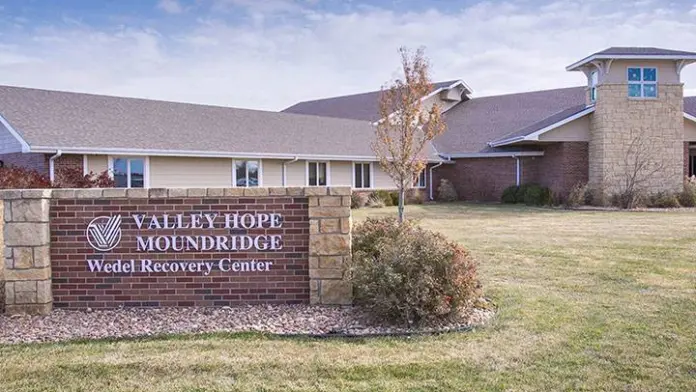
Location
Accepted Insurance
Other Forms of Payment
Private insurance refers to any kind of healthcare coverage that isn't from the state or federal government. This includes individual and family plans offered by an employer or purchased from the Insurance Marketplace. Every plan will have different requirements and out of pocket costs so be sure to get the full details before you start treatment.
Self-pay involves paying for treatment out of your own pocket. You can use savings or credit, get a personal loan, or receive help from family and friends to fund your treatment. If you don't have insurance or your insurance plan doesn't cover a specific program, self-pay can help ensure you still get the care you need.
Military members, veterans, and eligible dependents have access to specific insurance programs that help them get the care they need. TRICARE and VA insurance can help you access low cost or no cost addiction and mental health treatment. Programs that accept military insurance often have targeted treatment focused on the unique challenges military members, veterans, and their families face.
Medicaid is a state based program that helps lower-income individuals and families pay for healthcare. Medicaid covers addiction treatment so those enrolled can use their coverage to pay for rehab. When a program accepts Medicaid the client often pays very little or nothing out of their own pocket.
Addiction Treatments
Levels of Care
Treatments
The goal of treatment for alcoholism is abstinence. Those with poor social support, poor motivation, or psychiatric disorders tend to relapse within a few years of treatment. For these people, success is measured by longer periods of abstinence, reduced use of alcohol, better health, and improved social functioning. Recovery and Maintenance are usually based on 12 step programs and AA meetings.
The length, intensity, setting, and treatment methods vary for each drug rehab in Kansas. Plans of care can be tailored to meet each person's own unique situation and needs. With the right program, individuals can successfully achieve long-term sobriety.
Opioid rehabs specialize in supporting those recovering from opioid addiction. They treat those suffering from addiction to illegal opioids like heroin, as well as prescription drugs like oxycodone. These centers typically combine both physical as well as mental and emotional support to help stop addiction. Physical support often includes medical detox and subsequent medical support (including medication), and mental support includes in-depth therapy to address the underlying causes of addiction.
Substance rehabs focus on helping individuals recover from substance abuse, including alcohol and drug addiction (both illegal and prescription drugs). They often include the opportunity to engage in both individual as well as group therapy.
Programs


Clinical Services
Cognitive Behavioral Therapy (CBT) is a therapy modality that focuses on the relationship between one's thoughts, feelings, and behaviors. It is used to establish and allow for healthy responses to thoughts and feelings (instead of unhealthy responses, like using drugs or alcohol). CBT has been proven effective for recovering addicts of all kinds, and is used to strengthen a patient's own self-awareness and ability to self-regulate. CBT allows individuals to monitor their own emotional state, become more adept at communicating with others, and manage stress without needing to engage in substance abuse.
Experiential therapy is a form of therapy in which clients are encouraged to surface and work through subconscious issues by engaging in real-time experiences. Experiential therapy departs from traditional talk therapy by involving the body, and having clients engage in activities, movements, and physical and emotional expression. This can involve role-play or using props (which can include other people). Experiential therapy can help people process trauma, memories, and emotion quickly, deeply, and in a lasting fashion, leading to substantial and impactful healing.
Substance use disorder (SUD) affects more than just the person struggling with the disease. It impacts every member of the family. At Valley Hope, they understand the problems families face and offer a range of programs designed to alleviate feelings of fear, guilt, frustration and resentment. Through compassion and understanding, they help families heal and recover together. They offer a variety of services for individuals, couples and families at our residential and outpatient treatment facilities. Individual, family and small group sessions explore emotional responses to addiction and consider positive ways of managing emotions. Interactive lectures help families understand the disease of addiction and learn behaviors that will support their loved one’s recovery. Designed to help families begin the healing process, Family Intensive Treatment (FIT) offers daily online group discussions facilitated by a family counselor, plus individual therapy online once a week. Online video conferences are held weekly in a live group session. FIT is offered to any person affected by a loved one’s substance use disorder. You do not have to have a family member at one of our centers in order to participate.
Group therapy is any therapeutic work that happens in a group (not one-on-one). There are a number of different group therapy modalities, including support groups, experiential therapy, psycho-education, and more. Group therapy involves treatment as well as processing interaction between group members.
In individual therapy, a patient meets one-on-one with a trained psychologist or counselor. Therapy is a pivotal part of effective substance abuse treatment, as it often covers root causes of addiction, including challenges faced by the patient in their social, family, and work/school life.
Amenities
-
Residential Setting
-
Private Setting
Accreditations

The Joint Commission, formerly known as JCAHO, is a nonprofit organization that accredits rehab organizations and programs. Founded in 1951, the Joint Commision's mission is to improve the quality of patient care and demonstrating the quality of patient care.
Joint Commission Accreditation: Yes

LegitScript has reviewed Valley Hope of Moundridge as part of their certification program, and has determined that it meets the LegitScript standards for legality, safety and transparency.
LegitScript verified in June 2020

The National Association of Addiction Treatment Providers (NAATP) is a professional association that represents organizations in the field of addiction services. Founded in 1978, NAATP's mission is to advance addiction services and ensure that high-quality addiction treatment is available and accessible.
NAATP Member: Yes
Member ID: 1480
Contact Information
200 S Avenue B Ave
Moundridge, KS 67107







